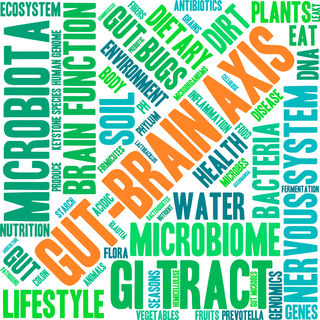Diet
Black Tea Alters Gut Microbiome in Anti-Obesogenic Ways
UCLA scientists find a link between black tea, gut microbiome, and weight loss.
Posted October 4, 2017

For the first time, researchers at the University of California, Los Angeles (UCLA), have identified that the polyphenols in black tea alter gut microbiome profiles in a way that inhibited weight gain for mice who were being fed a high-fat/high-sucrose "obesogenic" diet.
By changing gut metabolites and intestinal microflora, it appears that black tea alters energy metabolism in the liver of mice in ways that promote weight loss. Green tea was also found to have anti-obesogenic effects but via a different molecular alteration of gut microbiota. These findings were published online, September 30, in the European Journal of Nutrition.
Each of us has trillions of microorganisms and diverse bacterial communities—commonly referred to as microbiome or gut microbiota—residing in our gastrointestinal tract at any given time. Microbiota is a diverse ecological community of microorganisms that are generally a combination of both beneficial “good bacteria” and potentially harmful bacteria. The human gut is similar to that of a mouse and generally harbors over 100 trillion microorganisms. Microbiome colonies begin to reside within our intestines immediately after birth and are vital to the healthy development of your immune system and are associated with various important neurobiological and physiological functions.
Use Common Sense: Consuming Synthesized Tea Extracts Can Be Dangerous
Before jumping to any conclusions about the human implications of this study, there is an important disclaimer: The fact that scientists have identified a correlative link between green/black tea polyphenols, changes in gut microbiome, and decreased weight gain in mice being fed an obesogenic diet does not mean that anyone should begin taking tea extracts in a pill form or drinking excessive amounts of tea in attempt to lose weight. Highly concentrated or synthesized components found in tea can be toxic. Please use common sense and consult with your primary care physician before making any dramatic changes to your diet or taking over-the-counter supplements.
That said, these new UCLA findings shed light on the extremely complex but exciting possibilities that green and black tea might potentially have on our gut microbiome communities and the molecular ripple effect that changes in microflora can create throughout our minds and bodies.

More specifically, the researchers found that both green tea (GT) and black tea (BT) resulted in a decrease of Firmicutes gut bacteria and an increase of Bacteroidetes. Additionally, the relative proportions of Blautia, Bryantella, Collinsella, Lactobacillus, Marvinbryantia, Turicibacter, Barnesiella, and Parabacteroides were correlated with weight loss in mice on an obesogenic diet who consumed GT or BT extracts. Basically, this means that green and black tea decreased the percentage of microbiota associated with obesity while increasing gut bacteria associated with lean body mass.
Notably, only mice that consumed black tea extract displayed an increase in the Pseudobutyrivibrio bacteria, which might explain the difference between how black tea and green tea change energy metabolism.
The UCLA research team was able to pinpoint that black tea polyphenols—which are too large to be absorbed in the small intestines—stimulated the growth of gut bacterium and the formation of short-chain fatty acids, which are a type of bacterial metabolites previously found to alter energy metabolism in the liver.
In a statement, Susanne Henning, the study's lead author and adjunct professor at the UCLA Center for Human Nutrition, said: "It was known that green tea polyphenols are more effective and offer more health benefits than black tea polyphenols since green tea chemicals are absorbed into the blood and tissue. Our new findings suggest that black tea, through a specific mechanism through the gut microbiome, may also contribute to good health and weight loss in humans."
Zhaoping Li, director of the UCLA Center for Human Nutrition, chief of the UCLA Division of Clinical Nutrition and the study's senior author, added: "The findings suggest that the health benefits of both green tea and black tea go beyond their antioxidant benefits and that both teas have a strong impact on the gut microbiome."
Henning summed up the main takeaway of her team's findings: "The results suggest that both green and black teas are prebiotics, substances that induce the growth of good microorganisms that contribute to a person's well-being. For black tea lovers, there may be a new reason to keep drinking it.”
Again, please use common sense when making any significant changes to your diet. These laboratory findings on mice being fed an obesogenic diet offer exciting insights into how polyphenols in black and green tea alter gut microbiome profiles in animals, but should not be misconstrued as a reason to drink copious amounts of tea or to take synthesized tea extracts in an attempt to lose weight while still eating a high-fat/high-sugar diet.
References
Henning, Susanne M., Jieping Yang, Mark Hsu, Ru-Po Lee, Emma M. Grojean, Austin Ly, Chi-Hong Tseng, David Heber, Zhaoping Li. "Decaffeinated green and black tea polyphenols decrease weight gain and alter microbiome populations and function in diet-induced obese mice." Eur J Nutr (Published online: September 30, 2017). DOI: 10.1007/s00394-017-1542-8
Yashi Mi, Guoyuan Qi, Rong Fan, Qinglian Qiao, Yali Sun, Yuqi Gao, Xuebo Liu. "EGCG ameliorates high-fat– and high-fructose–induced cognitive defects by regulating the IRS/AKT and ERK/CREB/BDNF." The FASEB Journal. (2017) DOI: 10.1096/fj.201700400RR


